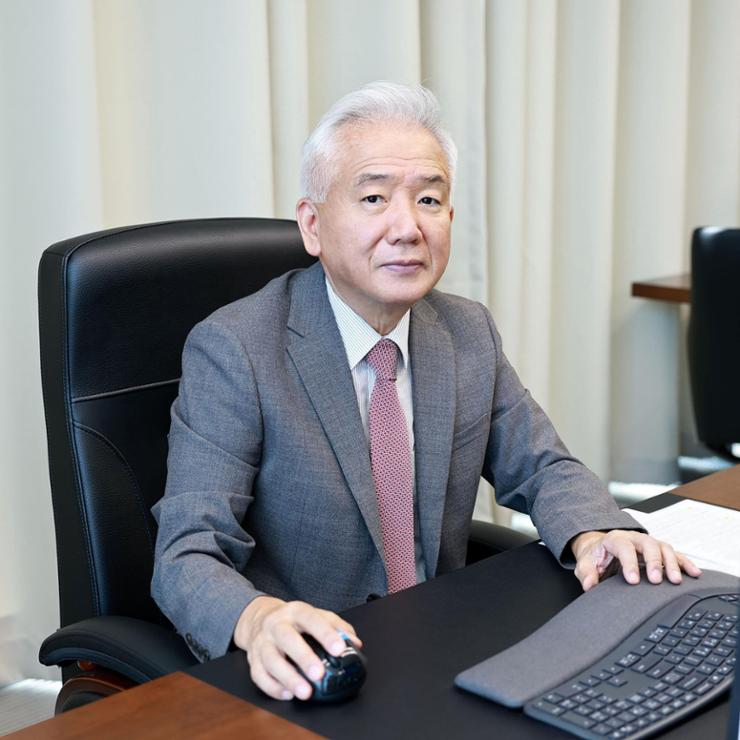WNAM REPORT: Koreans living abroad are valuable assets to the nation’s ambition of becoming a global pivotal state, according to Lee Sang-deok, commissioner of the Overseas Koreans Agency (OKA). He pledged to expand the global network of overseas Koreans to ensure their elevated status enhances the nation’s capabilities.
“One of the key national tasks of the government is for Korea to become a global pivotal state that promotes freedom, peace and prosperity. Overseas Koreans are essential partners in achieving this goal, as they have made significant contributions and advanced in mainstream societies worldwide,” Lee said in a written interview.
“Our agency aims to serve as a bridge by supporting overseas Koreans in maintaining their identity while contributing to their host societies, and in fostering ties between Korea and their countries of residence,” he added.
Lee, a seasoned diplomat with decades of experience, took office as commissioner of the OKA in July, becoming the agency’s second chief since its launch in June 2023. The agency, headquartered in Songdo, Incheon, under the Ministry of Foreign Affairs, oversees the affairs related to approximately 7.5 million Koreans living abroad.
Lee’s previous diplomatic roles include serving as ambassador to Singapore and Indonesia — both countries with significant Korean populations. His extensive experience has equipped him to effectively address the varied needs of overseas Koreans and to shape policies that support them.
While serving in foreign countries, he observed a significant improvement in the global perception of Korean nationals and growing respect for the Asian nation on the world stage.
“In the past, our diaspora policies primarily focused on healing the painful history of Korean emigration and emphasizing their ethnic and emotional ties to the homeland. However, many overseas Koreans now seem to have overcome the challenges of settling in foreign countries and have achieved significant economic success,” Lee said.
“We will work to strengthen these global networks, ensuring that the elevated status of overseas Korean communities contributes to the overall growth of Korea.”
The OKA’s policy targets are quite broad, Lee said.
“Based on the Framework Act on Overseas Koreans, the agency defines overseas Koreans as permanent residents of foreign countries, Korean nationals residing abroad for business or study, and their children. All are considered recipients of the OKA’s policies.”
October is a particularly busy month for the OKA, with major events hosted by the agency. Earlier this month, the World Korean Community Leaders Convention was held in Seoul, bringing together 360 Korean community leaders from around the world.
“This yearly event has evolved into a platform for exchange and communication among leaders of Korean communities, allowing them to pool their strengths for mutual growth and development,” Lee said.
Another significant event, the World Korean Business Convention, will take place from Tuesday to Thursday in Jeonju, North Jeolla Province. The convention, which is the largest gathering of overseas Korean businesspeople, will feature one-on-one business meetings, a startup competition and other activities involving university students.
“Our focus is to transform this convention from just a gathering of Korean entrepreneurs into a platform that leverages their global networks to offer practical support for domestic small and medium-sized enterprises and small business owners looking to expand overseas,” Lee said.
Unlike previous World Korean Business Conventions that were held in typical conference halls, this year’s event will take place on the Jeonbuk National University campus, reflecting its broader focus on engaging the younger generation, including university students, the commissioner noted.
Lee also highlighted the potential role of overseas Koreans who are choosing to return to their homeland in addressing the nation’s demographic challenges. In recent years, Korea has seen a steep increase in Koreans from post-Soviet nations, known as “Koryoin,” and Joseonjok, ethnic Koreans from China, resettling in Korea.
The return and settlement of overseas Koreans could help rural regions alleviate the difficulties related to the shrinking population.
“From this aspect, we are encouraging the return of overseas Koreans and are committed to creating a stable environment for their settlement in Korea,” Lee said. “Specifically, we plan to establish a comprehensive support system to facilitate a smooth settlement process, from pre-arrival preparations to ongoing post-arrival assistance.”
As part of these efforts, the OKA will distribute a settlement guide for overseas Koreans by the end of this year to provide early-stage settlement assistance. Next year, the agency plans to introduce customized educational programs tailored to the needs of overseas Koreans.
The OKA also aims to collaborate with local governments interested in attracting overseas Koreans, promoting subsidy programs to support their resettlement.
Lee also addressed some challenges related to the location of the OKA headquarters. While its base in Incheon offers the advantage of proximity to Incheon International Airport, the country’s main gateway, the distance from Seoul has made it somewhat inconvenient for overseas Koreans to visit.
“To address these challenges, we have opened the service and support center for overseas Koreans in Jongno (District), Seoul, which handles various administrative requests and provides consultation services to assist overseas Koreans. Additionally, we are actively considering establishing a branch of the OKA Service Center at Incheon International Airport,” Lee said.
“We will continue making efforts to gather feedback from overseas Koreans through various meetings, ensuring that no voices are left unheard.”


